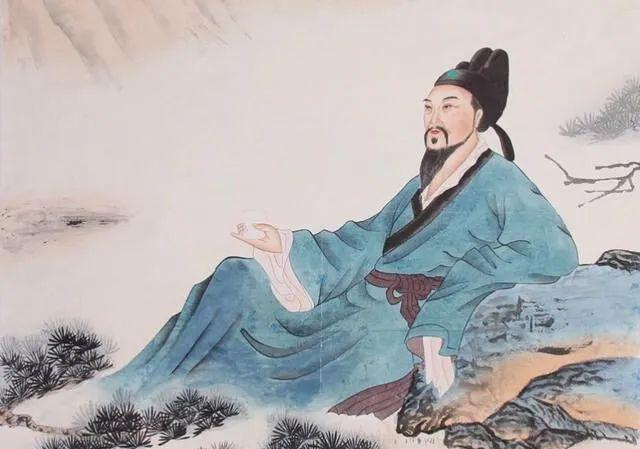Poetry hunting every day
Pay attention to the reading dogs
In the twenty-fifth year of the tang dynasty (737 AD), Hexi Jiedu caused Cui Xiyi to defeat Tubo, and Wang Wei was ordered to go out to offer condolences and visit the military situation.
This is not a glorious errand, but the effect of Zhang Jiuling's depreciation. It was Zhang Jiuling who recommended Wang Weiren to the post of Right Picker, and now the nest has overturned, and there are eggs? In this way, Wang Wei was expelled from the imperial court, and marched towards the side with the identity of a "superintendent of imperial history", light and simple, quite a bit of desolate meaning.

In this way, Wang Wei, who came to Biansai for the first time, saw a strange scenery completely different from the Central Plains, and with emotion, wrote a famous poem "Making the Supreme Plug":
"
Make to the plug
Don Wang Wei
The bicycle wants to ask the side, and the country is too long.
Zheng Peng out of Han Sai and returned to Hu Tian.
The desert is lonely and straight, and the long river is full of sunsets.
Xiao Guan waited for the ride and protected Yanran.
"Zheng Peng out of Han Sai, return to the geese into Hu Tian." The poet compares himself with "Peng" and "Geese", saying that he is like a grass that goes with the wind to come out of "Han Sai", and enters "Hu Tian" like the "Gui Geese" that fly north of Zhen Fei. In ancient poems, fei peng is often used as a metaphor for the wandering son who is drifting outside, but here it is a metaphor for a minister with a mission to the imperial court, which is to allude to the anger and depression in the poet's heart.
From the right to the supervision of the imperial history, according to the official rank, it is equivalent to descending from "zhengwu pinshang" to "zhengba pinxia", which can almost be described as "falling by a thousand". Although the Supervision Imperial History also has some authority, it is ultimately inferior to the scenery of the holy sayings in the past.
There is no honor guard, no pomp, not even the red tape of greeting along the way, above the desolate and vast desert, a bicycle cuts a lonely silhouette between heaven and earth. The ancient vast desert was originally a bystander of this ruthless exile, but it became vivid and clear because of the phrase "the desert is lonely and the sun is setting on the long river".
The majestic images of "desert smoke" and "sunset on the long river" are used together and are integrated, and have long exceeded the boundaries of elegance and customs. Throughout the ages, countless literati and inkers have praised it, but the one who has the essence of it is Cao Xueqin. He not only praised Wang Wei through Daiyu's mouth, but also let Xiang Ling break through the mysteries of the Ma jie refining words.
Xiang Ling smiled: "I watched his "Plugged Up" song, that one cloud: 'The desert is lonely and straight, the long river is sunset round' - how straight do you want to come to the smoke? The sun is naturally round. The word 'straight' seems unreasonable, and the word 'circle' seems too vulgar. When I closed the book and thought about it, it was as if I had seen this scene. If you say that you can find two more words for these two, you can't find two more words... Come to think of it, I must have to describe these two words to the end, and reading it in my mouth is like an olive weighing thousands of pounds..."
Xiang Ling's description is completely naïve, but it also shows Wang Wei's return to the realm of poetry, and also establishes the status of this poem in the textbook. So we can't help but sigh: although it is a thousand years apart, Cao Xueqin can be called Wang Wei's true confidant!